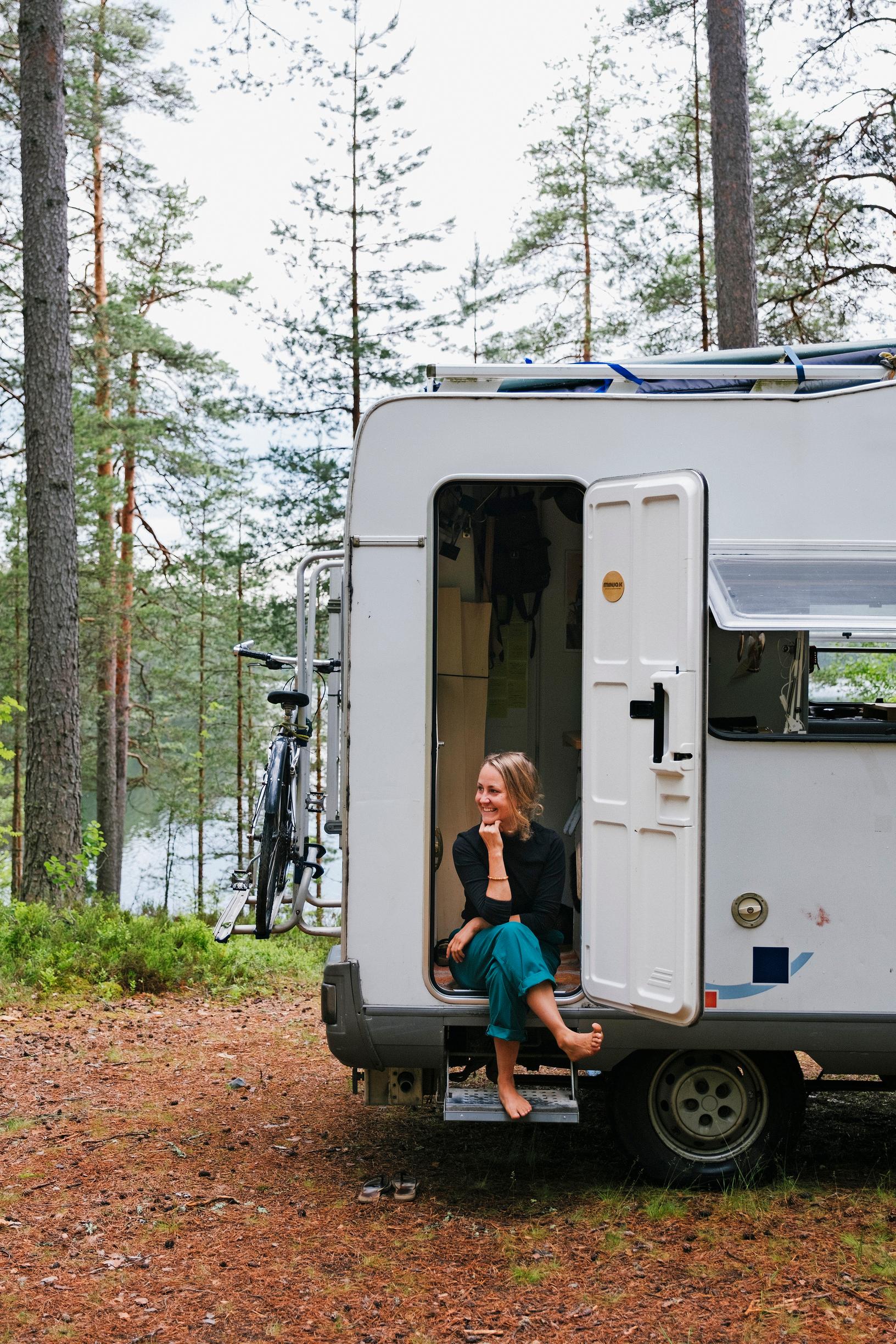
“My father’s death pushed me to pursue my dreams”—Minja transforms motorhome into home and workshop
Three years ago, carpenter Minja Kolehmainen moved into a camper van. This life change taught her new priorities.
First, Minja Kolehmainen called her mother. She had just read a message on her phone, collapsed to her knees and began to cry. The Finnish Cultural Foundation’s decision on her application for an artist grant was positive, her phone screen read.
“Mom, I got it! I can get out of here!” Minja recalls saying.
It was February 2021. At the time, Minja was living in her bright little home in the artisan village of Fiskars, working as a carpenter at the design company Nikari.
Still, something gnawed at her. Minja felt as if she didn’t belong where she was.

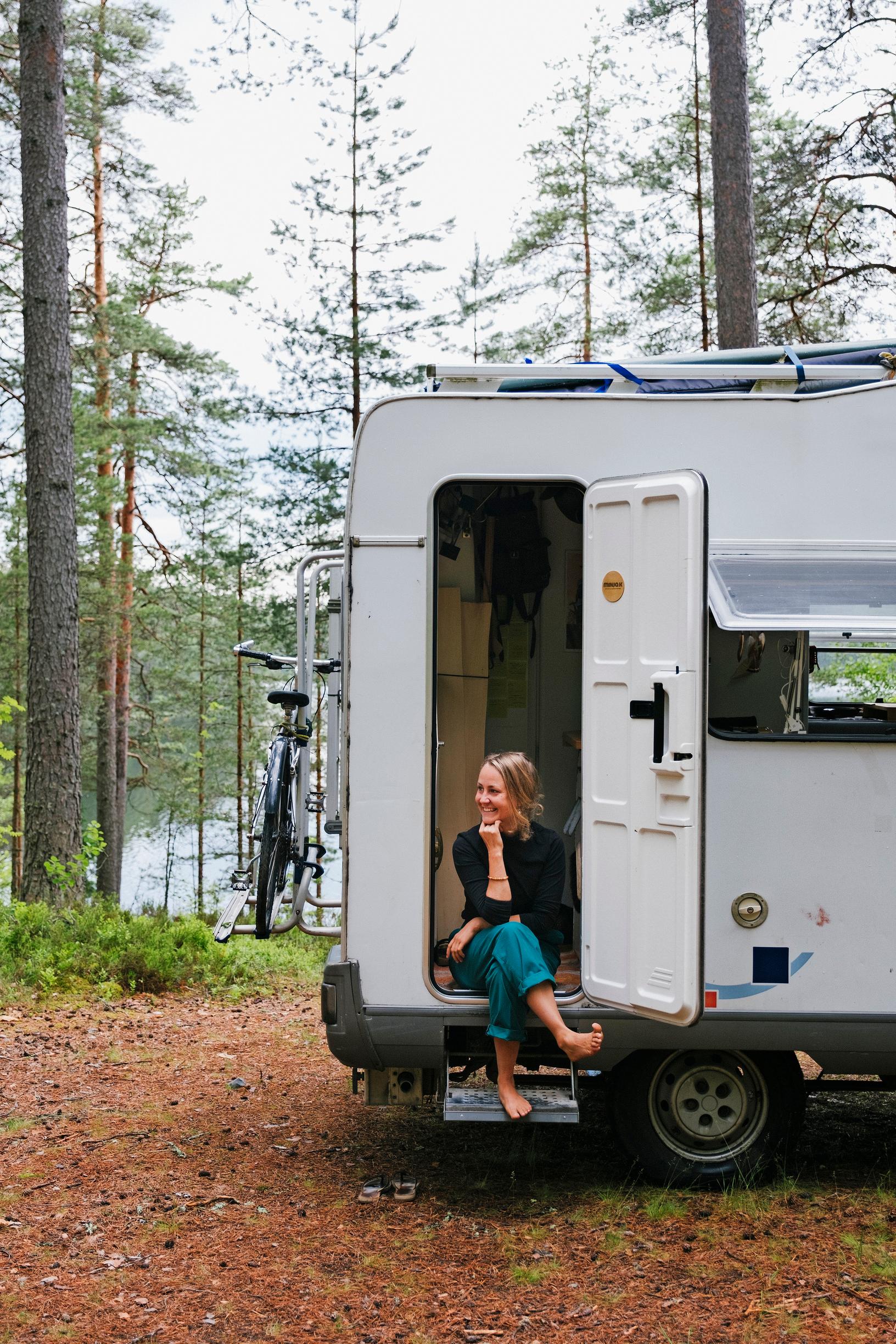
Three years earlier, Minja’s life had been shaken. Her father died in 2018, just after retiring. The responsibility of the estate inventory fell mostly on Minja’s shoulders, and she found herself burning out. Tears came easily, her skin worsened, and she suffered from fevers.
Minja mourned her father but also avoided her feelings by focusing on mandatory tasks. At the same time, she realized that her own life wouldn’t last forever either.
“In a way, my father’s death woke me up to the fact that I need to pursue my dreams,” Minja says.

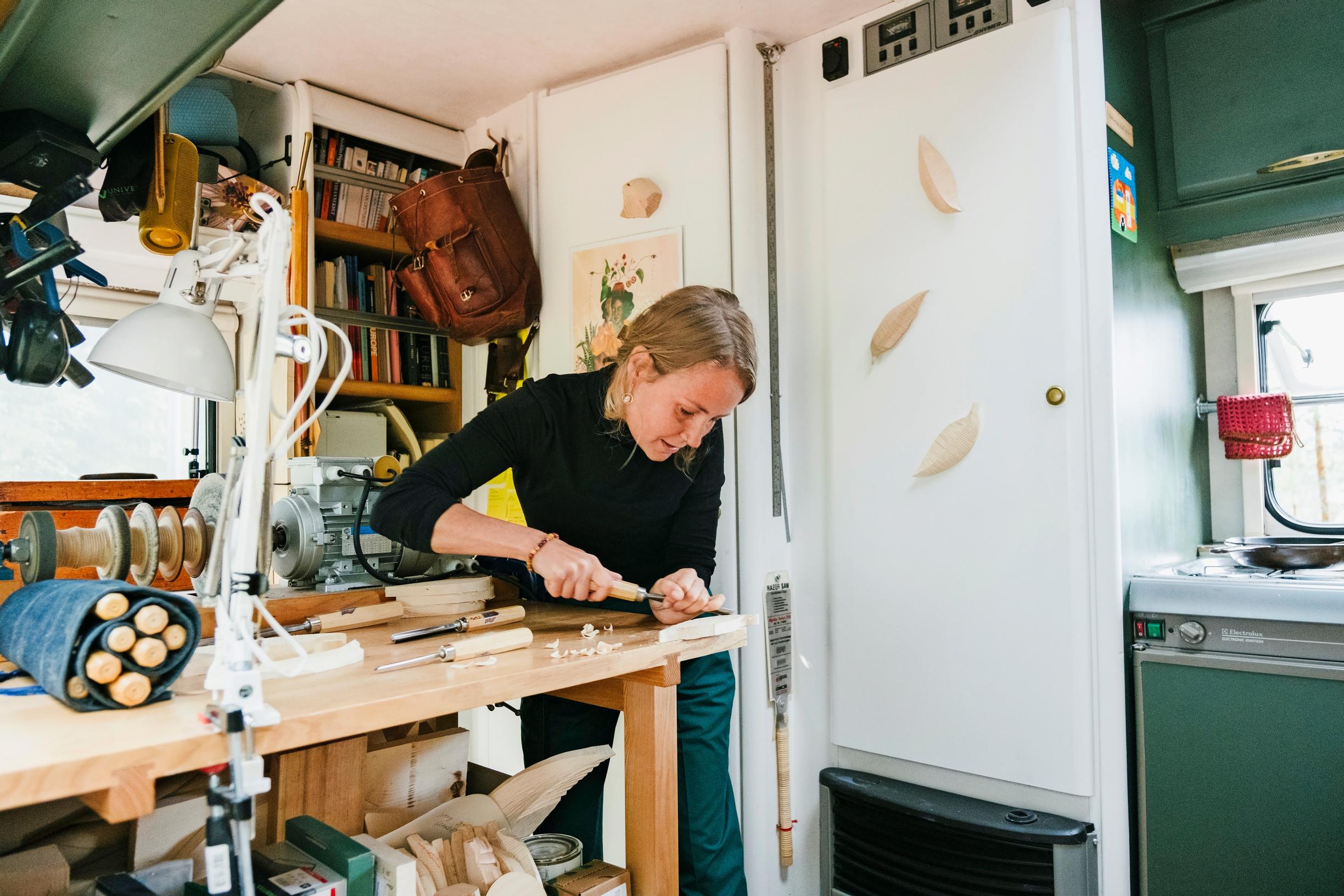
Traveling alone had been Minja’s dream for a long time. A year after her father’s death, in the fall of 2019, she set off on a six-month backpacking trip—first to Europe, then to Sri Lanka. After returning home, she planned to continue traveling in Europe in her small van, into which she had built a kitchen and a bed.
Then the COVID pandemic closed borders. Minja wondered whether she could continue her journey. Or should she return to work? She had a subtenant in her Fiskars home, so she decided to keep traveling.
While traveling to northern Norway, she met people who lived in their vehicles and worked remotely.
“It felt inspiring. I was sure I could find a way to combine carpentry work with traveling,” Minja says.
She decided to apply for a grant. With it, she could buy a camper van that would become her new home and workshop. Carving could be done in a small space with few tools.

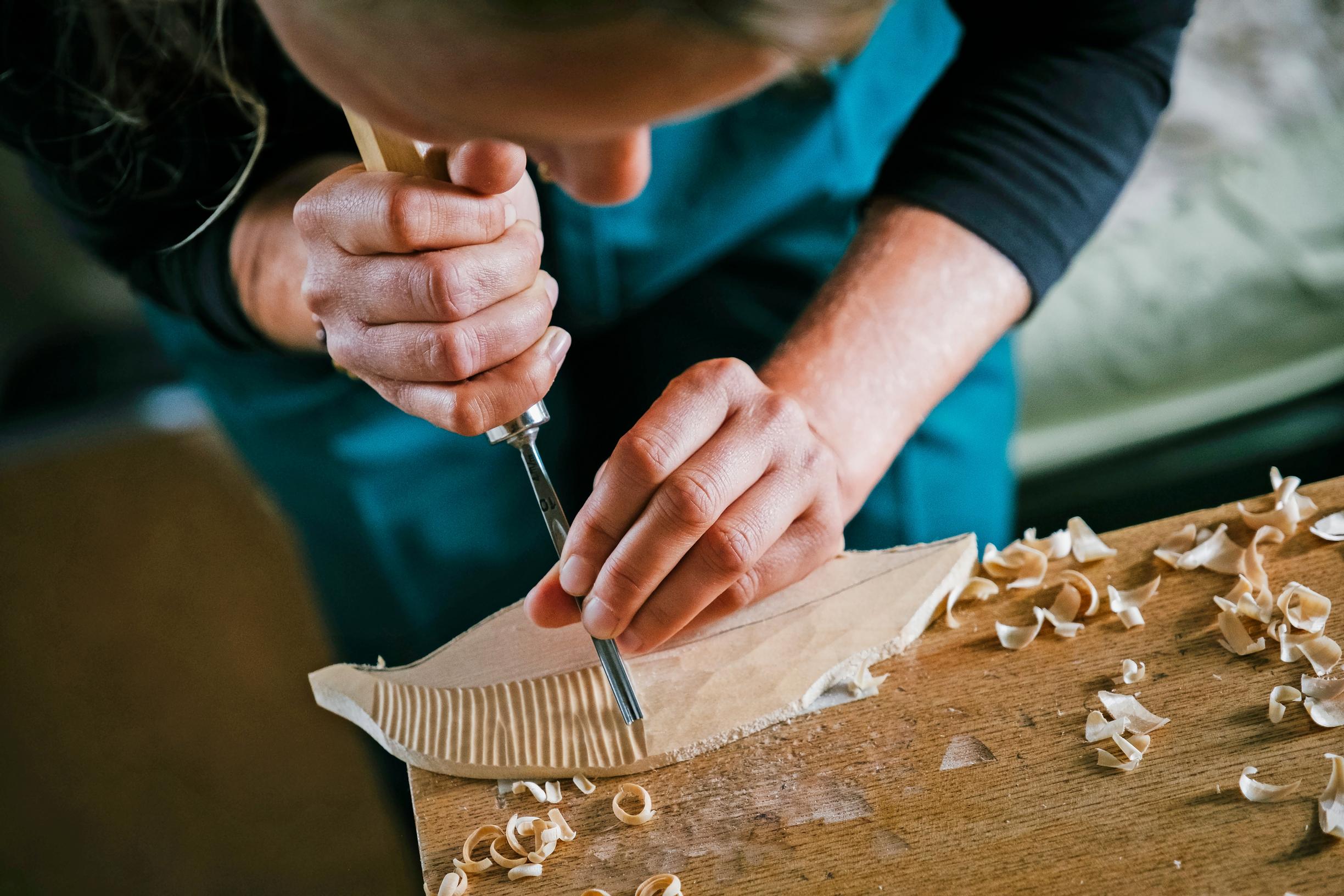
“When I got sick, I was ready to give up everything”
Her new home needed to have larger and more functional interior spaces than her small van. She needed to be able to stand and carve in the living area. An indoor toilet and heating were mandatory.
She found just such a camper van in Raisio and began customizing it. She cleaned the interior of the Hymer-brand vehicle and painted over the faux-beech walls and cabinet doors in pine green and white. She removed the lounge bench and table and built a carving table in their place. Under another bench, she stored wood pieces and the carving tools she needed.
Thanks to the grant, she could now afford this. Preparing for the trip felt good.
“I was getting closer and closer to my dream.”
In August 2021, Minja set off with her then-boyfriend. However, the journey came to a halt in Sweden because Minja fell ill with COVID-19 and spent two weeks in the hospital. It felt like a terrible setback.
“I was in such weak condition that at one point, I was ready to give up everything as long as I could get home.”
Minja returned to recover at her mother’s place in Helsinki. At the same time, she worried whether the grant period would now be wasted. What if she couldn’t go anymore? What if her health failed again?
“My condition improved when I got away from the city and into nature. I spent time on the beach, walked, and dipped into the cold sea. It healed me.”
Encouraged by a friend, Minja drove her camper onto the ferry to Travemünde in November. She decided to head first to her sister’s place near Paris.
“I planned to visit my sister briefly, and see exhibitions in museums and galleries. But then my condition collapsed again,” Minja says.
The sore stomach and clumps of hair falling out may have been after-effects of COVID-19. Her time at her sister’s extended to a month, but after that, Minja was able to continue. She first drove 240 kilometers from Paris to the Atlantic coast—her sister would still be nearby, and she could return if necessary.
However, the first week went well.
“My condition improved when I got away from the city and into nature. I spent time on the beach, walked, and dipped into the cold sea. It healed me.”

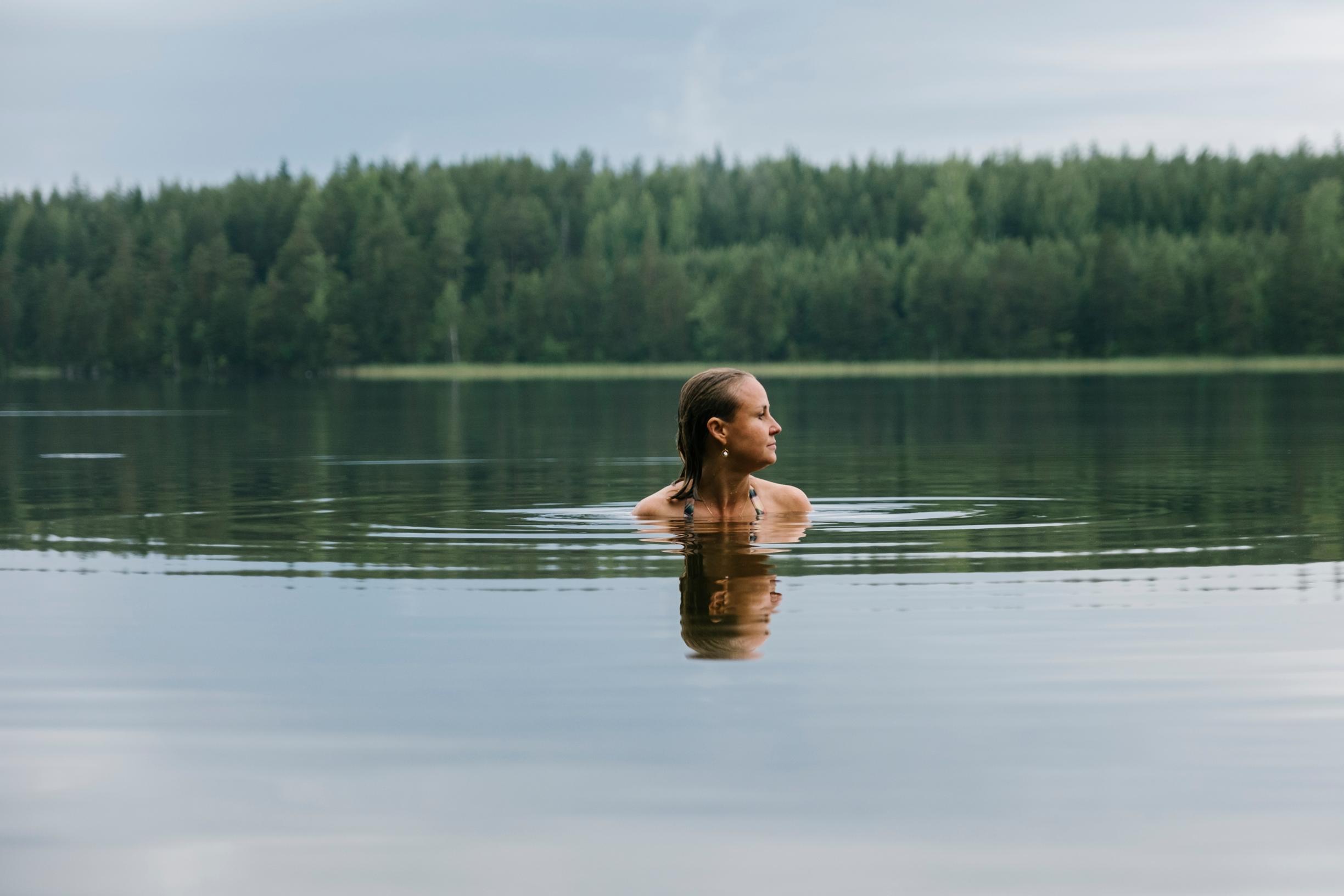
“I’ve learned that almost all people wish you well”
Minja was able to smile again. She drove leisurely along the French coast toward the south. The proximity of the ocean felt good, and her worst fears about coping faded.
On the journey, Minja met other travelers, like a Norwegian couple. They became friends and continued traveling together toward the Basque Country. The Norwegian man carved little wooden figures. A shared respect for nature united them.
“It was absolutely amazing! I traveled with them for probably two weeks. We shared something and understood each other.”
Now Minja has spent three years on the road and driven thousands of kilometers around Europe. During that time, the camper van has become a real home.
Every morning, Minja feels great gratitude.
“I think about how incredibly well things are for me. I get to do what I want. I get to be creative and live peacefully, set my own schedule, and be in the forest and close to nature as much as I want.”
She has also found love on her journey. In Portugal, Minja met a local man while visiting a local wood carver. He was working as the carver’s assistant.
However, Minja still travels alone a lot and has to consider her safety. She says she has to be cautious at all times.
“I’ve learned that 99.5 percent of people are wonderful and don’t wish any harm. But then there are those who have not-so-good intentions,” Minja says.
In Germany, a strange man began masturbating outside her vehicle. When Minja noticed, she quickly packed her things and left. There have also been fights at rest stops. In those times, Minja has waited quietly so as not to draw attention.
She has learned to set off early in the morning to arrive by afternoon.
“And if a new place doesn’t feel good, I have a few hours to find another spot before it gets dark.”
These events have made Minja think about the order of priority when it comes to her needs. Safety comes first, then water, food, and hygiene.
“I’ve realized this thanks to unpleasant experiences. They say you only appreciate things once you’ve lost them, don’t they?”

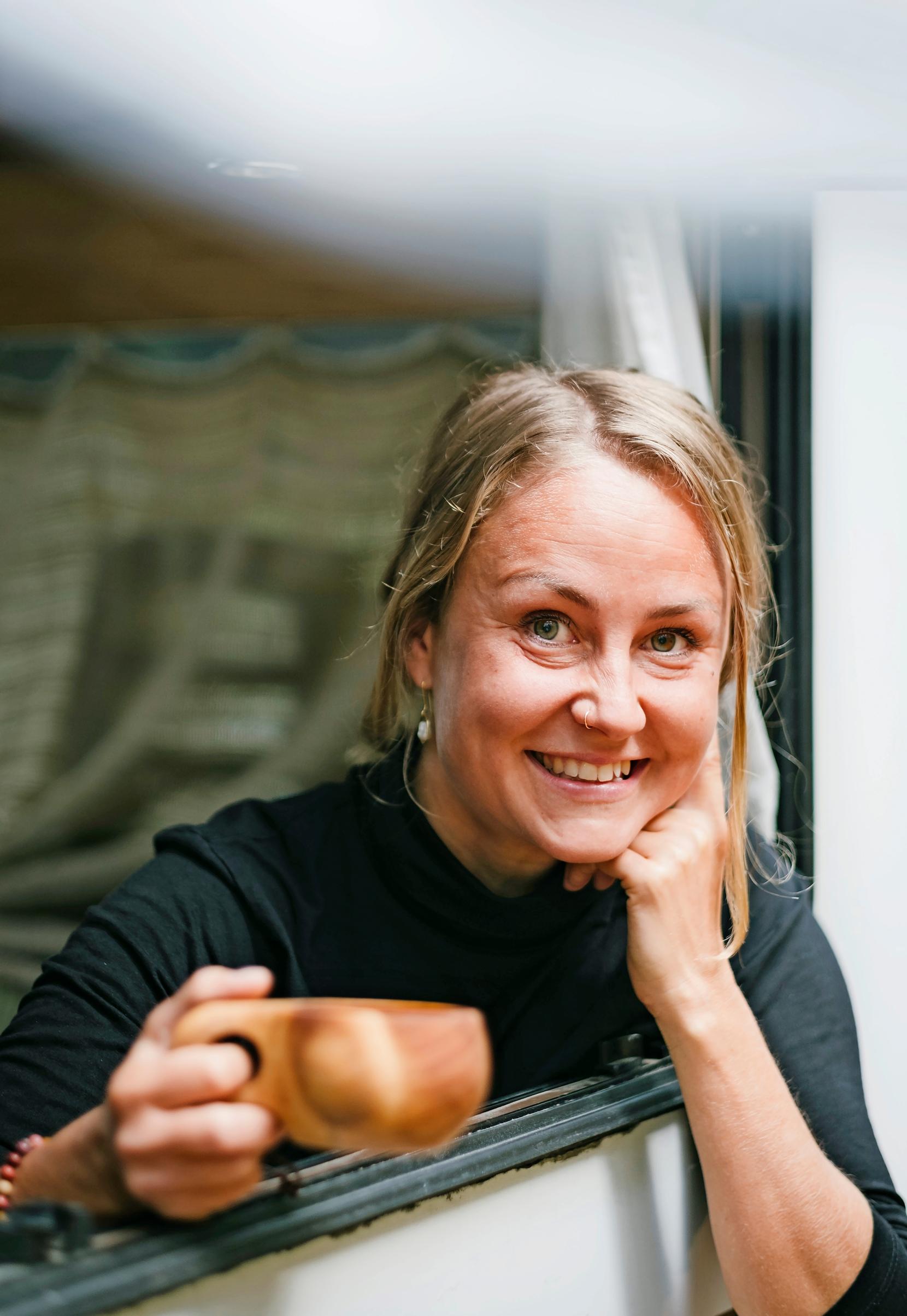
“What if there are lots of good things to come?”
Minja has parked her camper van by a small forest lake near Fiskars. The morning has been peaceful. She has taken a walk in the forest barefoot. It feels like being connected to the earth, and her sense of balance seems to work better.
Living in the midst of nature helps with stress as the nervous system calms down, Minja says.
“I want to wake up every morning so that I can go walking in nature and get grounded right from the start. It brings me a certain calmness that lasts the whole day.”
Minja has enjoyed spending the summer in Finland. Nowadays, she likes to stay in one place for weeks or even months.
“What’s great about this kind of life is that I can change my plans,” Minja says.
Minja works continuously. She markets on social media, connects with galleries and art competitions, and writes grant applications. Immersing herself in carving is like therapy at times, helping her have a positive outlook on the future.
“I prefer to think, what if there are a lot of good things coming my way? I always have to remind myself to have faith that life will carry me.”
“What’s great about this kind of life is that I can change my plans at any time.”
Back in her teens, Minja thought that at 25 she would have a husband, two children, and perhaps a house. Her life is quite different from that, but Minja is content.
On the other hand, she believes that this phase won’t last forever either. Dreams are allowed to change.
“Now I dream of a little cottage somewhere in the middle of nowhere, where I could grow edible plants in the garden. That’s my next step,” Minja says.
A small wooden sign hangs on her home’s wall, a gift from a colleague. It reads: Beauty lives, always.
“It reminds me that regardless of how I feel, I can appreciate my life every day.”


